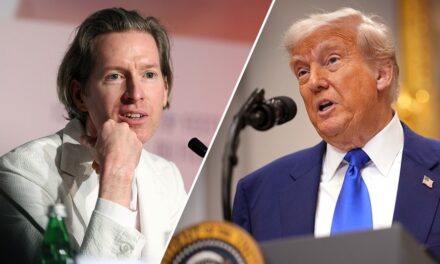In a landscape of political satire and intense social commentary, a recent initiative by the Democratic Party has sparked widespread derision among conservatives and many Americans. The Democrats have allocated a staggering $20 million toward a study designed to uncover “what’s wrong” with men in today’s society. This research initiative, presented by the party’s leaders as a necessary examination of contemporary gender roles, has quickly become a target for mockery and skepticism.
The study is intended to address various challenges faced by men in the current socio-economic climate, such as mental health issues, suicide rates, and unemployment. Advocates argue that it is vital to understand these concerns to create better support structures for men. However, the hefty price tag and the seemingly vague objectives of the investigation have led to widespread skepticism, particularly among Republicans and conservative commentators.
Within just days of the announcement, the internet was flooded with memes and jokes, as social media users expressed disbelief over the government spending priorities. Critics have lampooned the initiative, questioning the effectiveness of spending taxpayer money on a study that some perceive as unnecessary or redundant.
“Do we really need $20 million to find out what’s wrong with men? Has nobody ever watched a superhero movie or listened to a country song?” one user quipped on Twitter, inciting laughter and further ridicule.
Instead of serious discussions around mental health or support systems tailored for men, these caricatures humorously highlight what many see as an absurd misuse of funds. The criticism is not limited to social media. Political commentators have also weighed in, questioning the efficacy of such expenditures when other issues require urgent attention.
An article in a prominent conservative outlet described the initiative as “a taxpayer-funded therapy session” for men, while others framed it as an example of how Democrats, in their attempt to address gender issues, may have missed the mark entirely. This has fueled the narrative that the party is out of touch with everyday Americans and their genuine concerns.
Among the critiques, a common sentiment echoes that instead of funding broad-based research, the focus should be on practical solutions to issues affecting male mental health—like open dialogues, access to counseling, and community support networks.
However, supporters of the study argue that the challenges confronting men are systemic and multifaceted. They suggest that historic social norms have stifled men’s emotional expression, leading to considerable mental health challenges that can sometimes culminate in tragic outcomes. Rather than mock, they propose engaging in a more profound conversation about masculinity, vulnerability, and emotional well-being.
While the Democrats have positioned this study as a progressive step towards understanding men’s experiences, many see it as part of a broader narrative of perceived government overreach and frivolity. Funding research into gender-based issues is certainly not a new endeavor, but the allocation of such a sizable sum has heightened concerns about financial accountability and precise objectives.
The reactions from constituents reflect a growing trend of mistrust in government spending. With many Americans facing inflation and economic uncertainty, critiques of this initiative often cite misplaced priorities at a time when social and economic relief are needed most. In an era where populist sentiment is robust, initiatives like this threaten to reinforce existing divisions between the two major political parties.
This backlash is not solely confined to policymakers and influencers. Everyday Americans have confronted politicians with their bewilderment over spending priorities. In town halls, local forums, and even social gatherings, constituents have voiced their concerns about economic inequalities and pressing social issues that need addressing—such as education, healthcare, and infrastructure—rather than a study examining the complexities of manhood.
In a larger sense, the mockery of this study underscores a cultural battle over how gender issues are discussed in America. Some see their derision as a defense against “political correctness” and what they perceive as overreach into how traditional identities are defined and explored. The critical responses are indicative of growing frustrations toward governmental approaches to what many feel are personal matters better suited for individual or community resolution rather than federal intervention.
Moreover, the fierce reactions encapsulate a wider struggle over identity politics in which issues of masculinity, femininity, and everything in between are hotly contested. As the conversation around gender continues to evolve, it becomes increasingly clear that initiatives aimed at reconciliation face monumental challenges, particularly when the public perceives them through the lens of political bias.
The debate surrounding the $20 million study is also a reflection of a tumultuous political landscape where smaller groups of vocal individuals can influence broader narratives. While the objectives of the study might aim at fostering discussion, the overwhelming response reveals that there remains a significant gap between political intentions and public perception.
Some commentators have warned that ridiculing initiatives aimed at serious mental health discussions can detract from the necessary dialogue that’s crucial for societal progress. They argue that fostering understanding—whether through studies or community outreach—should not be thrown away by partisan mockery or quick judgments. Yet, they also recognize the financial implications, emphasizing that sound fiscal responsibility should always accompany such ventures.
Amid economic pressures, the notion that funds might better serve communities through direct mental health services rather than a study resonates strongly with those who perceive governmental interventions as operating in a bubble, disconnected from the realities of everyday life.
As the political climate reaches more divisive phases, the implications of this $20 million study may extend beyond mere mockery. It signifies a deeper probe into how different parties view gender roles, mental health, and the efficacy of governmental initiatives. Moving forward, the responses elicited from both sides of the aisle will likely influence future discussions on how gender is understood and supported in American society.
In the wake of this controversy, one question remains persistent: how will political leaders pivot from this moment? Will it lead to constructive dialogues that take into account the genuine complexities involved in discussions of masculinity, or will it continue to be another point of derision in a climate rife with conflict? Observers can only wait to see how the dynamics evolve in the context of modern American political discourse.
































